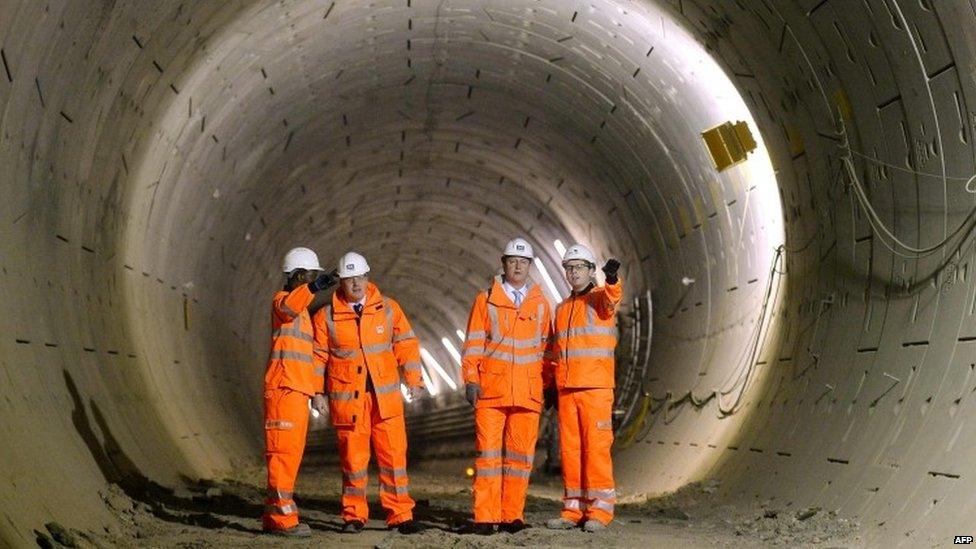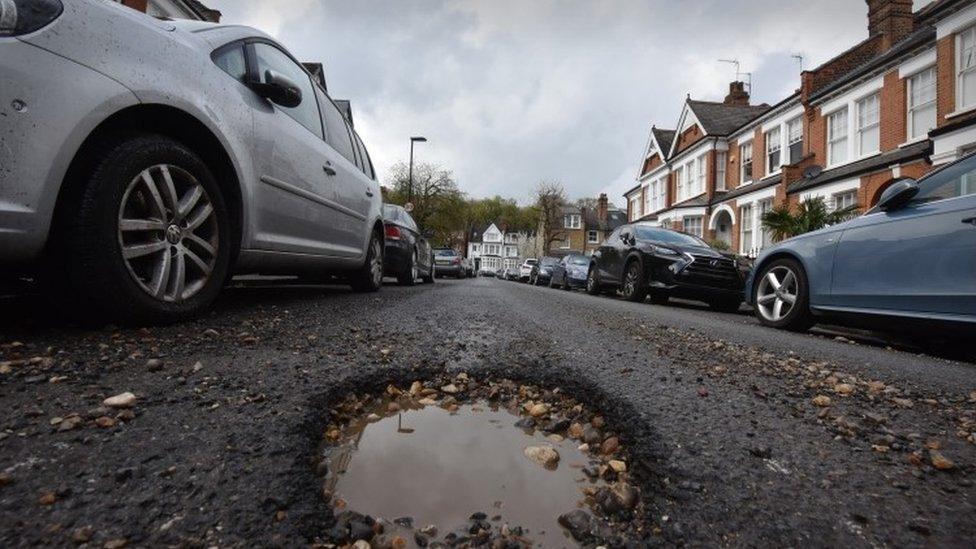Quitting EU would 'save billions' in procurement costs
- Published

Leave campaigners have accused David Cameron of doing too little to reduce procurement costs
"Foolish" EU procurement rules cost UK taxpayers £1.6bn a year, which could be better spent on new hospitals and flood defences, Leave campaigners have said.
Existing laws imposed a big bureaucratic burden on companies, Vote Leave said, with no regard to the size of contracts or who was tendering.
An estimated 1.9 million days were lost a year in red-tape delays, it added.
But Remain campaigners said their opponents' wider economic arguments were "falling apart".
Shadow business secretary Chuka Umunna said the Leave team were "becoming increasingly desperate" and claimed the figures cited showed that Norway and Iceland, which are outside the EU, faced higher procurement costs than the UK.
The British public will decide whether to vote to stay in the EU or leave in a referendum on 23 June.
In other developments:
Immigration figures from the Office for National Statistics data will include the latest numbers on net migration for 2015
The BBC's first EU referendum debate will be held in Glasgow at 20:00
Alex Salmond and Liam Fox are among those to be questioned by 18- to 29-year-olds
The Scottish Parliament is to formally support EU membership
Follow all the latest updates on the BBC's EU Referendum Live page
On Wednesday the Institute for Fiscal Studies said the budgetary gains from leaving the EU could be outweighed by the subsequent economic damage while the head of the World Trade Organization said the UK could face £9bn in import tariffs outside the EU.
As it seeks to turn the spotlight on the risks of remaining in the EU, Vote Leave has published new research it says shows the extent to which EU procurement processes are harming business competitiveness.
Procurement laws, it says, are an integral part of the EU's internal market, from which it wants to withdraw.
'Expensive delays'
The threshold at which procurement legislation applies is set too low, it says, inhibiting businesses from bidding for contracts above that level, while the rules cover purely domestic tenders, including the bulk of government contracts, unrelated to foreign trade.
The government, Vote Leave says, promised to alleviate the burden on private companies and public authorities of complying with the "onerous" rules - including the requirement to advertise all major tenders in EU publications and to read a 128-page code of contract regulations - but it did not feature in Mr Cameron's renegotiations of the UK's membership.

How to follow BBC One's EU Referendum debate
The first of three BBC referendum debates, hosted by Victoria Derbyshire, will be broadcast on BBC One from 20:00 BST
There will also be live coverage on the News Channel, 5 Live and Newsbeat
You can follow the action minute-by-minute on the
The BBC News Facebook page will livestream before and after the debate
The BBC News Snapchat Channel will also be active before, during and after the debates

Vote Leave says complying with EU rules has cost the British taxpayer £1.7bn in each of the past five years, funds which it says would pay for 25 new hospitals, 273,000 basic state pensions as well as increased spending on NHS drugs and road maintenance.
It arrived at the figure of £8.4bn over five years by multiplying the amount spent by government on current and capital procurement every year and multiplying that by the estimated cost of EU compliance, taking into account inflation.
Separate analysis suggests two million days have been lost in each of the past five years because of delays in finalising contracts.
Vote Leave has cited a European Commission report in 2011 suggesting UK contracts took 193 days on average to progress from tender to award, longer than any other EU member apart from Greece and Malta.

Leave campaigners say procurement costs are 34 times larger than what is spent on filling potholes
Justice Secretary Michael Gove, a leading Leave campaigner, has previously said EU procurement rules constrained government efforts to build new schools and refurbish existing ones when he was education secretary.
Speaking on Thursday, he said: "If we vote Leave, we can scrap the EU's foolish rules on how Whitehall runs procurement processes, which add billions to the cost of government every year," he said.
"I've experienced firsthand in the Department for Education how these rules add significant operational costs and generate expensive delays to construction projects.
"Across Whitehall, there are billions to save after we vote Leave."
But the Leave campaign has been accused of overstating the amount that would be saved by leaving the single market and circumventing existing EU regulation.
- Published18 April 2016

- Published30 December 2020
